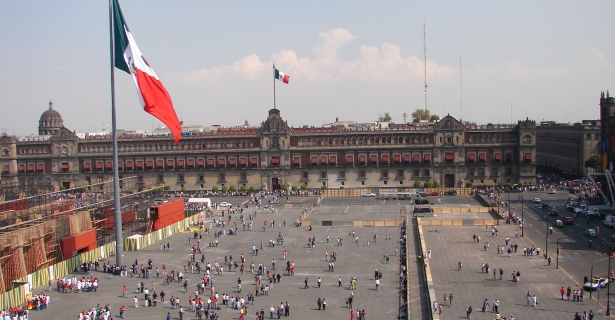Over the past year, I’ve been working on a business plan to start a kitchen incubator focused on supporting female entrepreneurs. Countless hours of research, Skype calls, and discussions with peers, mentors, and professors culminated in my decision to launch the pilot in Mexico City.
Although I developed a strong network and thesis for the business over the last year, I had no idea what my days in Mexico this summer would actually entail. If you’ve ever started anything new before, then you know that translating abstract ideas into action is one of the most challenging (and rewarding) aspects of innovation; and, in my opinion, the only way to manifest these ideas is to dive right in.
Thus, when I arrived in Mexico City a month ago, I was armed with expectations of uncertainty and rejection, hope for success, and knowledge of the following endemic problems:
1. Women often lack the resources, expertise, encouragement, and confidence to start a business that they intend to grow beyond a microenterprise (particularly in the emerging market context).
2. There are no shared kitchen spaces in Mexico City where people can improve and scale their food products.
3. Women in Mexico generally lack access to capital beyond the scope of microfinance.
4. Small-scale producers lack the capacity to serve and access key commercial markets both domestically and abroad.
My enterprise, ONDA, aims to address these problems. ONDA means wave in Spanish, which describes the ripple effect that investing in women has on the economic conditions of a household and a local community. By providing women with physical and intellectual resources, ONDA will help them and their businesses grow. In addition to providing technical assistance, our curriculum will include financial literacy, operational, and leadership training. By working with women to improve, scale, market, and distribute their products, ONDA will help women increase their incomes, confidence, and respect. Eventually, ONDA will link participating businesses with new markets in both Mexico and the U.S.
ONDA will also be a space where people can learn. Renowned guest chefs will give cooking lessons and experts will lecture on topics like masa and cacao. ONDA aspires to create a community that brings together people with disparate backgrounds into a kitchen where everyone is equal and imagination is the only constraint. In the long term, I hope to replicate this model around the world and to offer businesses a portfolio of high-quality food products made by female-owned companies.
Although this seems straightforward now, translating a jumble of experiences, ideas, and facts into a cogent form has been anything but. However, this translation process lies at the heart of starting a new venture.
Although I had no idea what my schedule would look like, the reality is that everyday is different, so I still don’t know what tomorrow may bring. Some days are consumed by meetings with people in the food and investment worlds, while other days consist of coming up with questions that need to be answered and hypotheses about who might be able to do so. Other days involve hunting for unique, tasty food products that could become part of our line (having days like this is one of the major perks of the job). In July, I’ll be searching for a commercial kitchen space; creating a financial model; trying more delicious food; and continuing to build a coalition of like-minded individuals and NGOs.
When I return to the Fletcher School this fall, I hope to bring back a viable business plan, tales of failures and successes, and some delectable Mexican food to share with the Tufts community.


Add new comment